Lie #1. Educational quality doesn’t matter.
ACCJC has overlooked all the evidence that shows City College students receive an excellent education. The Student Success Scorecard places the college above the state average when it comes to degree and transfer attainment, as well as student performance in English and ESL. In fact, City College success data has trumped the performance of the commissioners’ colleges. But in the eyes of the ACCJC, that’s not what matters in accreditation. With a driving emphasis on documentation of student learning outcomes, institutional finances, and governance, it clearly has a different vision for community colleges that diverts resources from the work of educating our students.
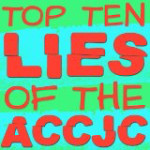 Lie #2. The college was bankrupt.
Lie #2. The college was bankrupt.
On the witness stand during the October 2014 trial of the City Attorney’s case against the ACCJC, Commission Chair Steve Kinsella claimed that City College was on the brink of financial insolvency. In fact, he had manipulated the numbers in several ways, for example, basing his assessment on June 30th figures before state funding showed up in the books a week later. ACCJC further inflated the college’s liabilities by requiring pre-funding of “other post retirement benefits” (OPEB) to the tune of millions. This is neither standard practice across the state, nor is it a legal requirement.
Kinsella insisted, despite repeat questioning from the City Attorney’s counsel, that the Prop A and Prop 30 funds, which bolstered City College’s funding by tens of millions, had no effect on its financial situation!
 Lie #3. City College didn’t take the ACCJC seriously.
Lie #3. City College didn’t take the ACCJC seriously.
In the courtroom last October, faculty were shocked to hear ACCJC commissioner claims that City College didn’t take the Show Cause sanction seriously. In fact, CCSF faculty rolled up their sleeves starting in summer 2012 to work on addressing each of the standards deemed out of compliance. The college identified 300 action items, and by June 2014 had addressed 95% of them. The ACCJC requirement for Student Learning Outcomes has translated into countless hours spent by faculty on rewriting curricula, assessing and documenting progress, and incorporating the SLO’s into their activities.
 Lie #4. City College had “deficiencies” since 2006.
Lie #4. City College had “deficiencies” since 2006.
In Judge Kurtis Karnow’s Jan. 16th decision on the case against the ACCJC, he recounts the sequence of events since 2006, when City College had regained full accreditation but received eight recommendations as guidance. Over the next several years, ACCJC accepted City College’s midterm reports without fanfare, but it chose to use the term “deficiency” on one occasion.
Karnow concluded, “Nothing else in the Commission’s communications with City College up to and including the Commission’s acceptance of the Focused Midterm Report indicates that City College was deficient in meeting the accreditation standards. To be sure, the Commission had identified concerns and required City College to take action to address those concerns. But it had not identified deficiencies.”
 Lie #5. CCSF’s budget all goes to salaries.
Lie #5. CCSF’s budget all goes to salaries.
Commission chair Steve Kinsella cited in his trial testimony a mythical standard: that just 80% of an institution’s budget that should go to employee costs. This figure is neither documented nor in the standards. Other colleges whose spending on employees was above 90% have not been sanctioned. Urban colleges and those with a broader scope of operations have higher expenditures, and CCSF’s is currently in line with the statewide average of 84%.
 Lie #6. ACCJC knows better than its evaluation teams.
Lie #6. ACCJC knows better than its evaluation teams.
ACCJC thinks it knows better than the teams it sends out to review colleges. It put the College on Show Cause in 2012, overriding its 2012 visiting team that recommended probation. And then when the commission issued the fateful termination order, it claimed an additional 10 standards had not been met – standards that were deemed satisfactory by the 2013 visiting team. These supposed areas of non-compliance were merely listed in the July, 3 2013 termination letter, without any explanation. Even the April 2015 Amended Report mandated by the court, grudgingly provided by the ACCJC, did not provide adequate justification for these ten standards. Essentially, the commission gave City College an unrealistic time frame of nine months, then declared the college guilty in 2013 for not finishing the dramatic changes that were underway.
 Lie #7. ACCJC can terminate accreditation without due process.
Lie #7. ACCJC can terminate accreditation without due process.
Since colleges under sanction must be noticed around any identified deficiencies before ACCJC can take action, the commission tried to dodge the bullet by creating a strange definition for “deficiencies,” describing them as something other than non-compliance with accreditation standards. The argument didn’t fly, and Judge Karnow’s ruling indicates that ACCJC broke the law in denying City College due process in 2013 when it ordered revocation but did not provide a detailed report on deficiencies, nor opportunity for City College to respond.
 Lie #8. ACCJC didn’t do anything wrong or treat CCSF unfairly.
Lie #8. ACCJC didn’t do anything wrong or treat CCSF unfairly.
Judge Karnow ruled that the ACCJC violated the law. Yet the commission claims it’s fine even though it has taken numerous improper actions, as the U.S. Department of Education has pointed out. Having ACCJC President Barbara Beno’s husband on the visiting team created a potential conflict of interest, DOE noted in their August 2013 letter to the Commission. And the ACCJC didn’t correctly apply the two-year rule for imposing sanctions; somehow its 2006 recommendations for CCSF morphed into “deficiencies” six years later. The commission used that rationale in its sudden decision to put CCSF on Show Cause in 2012. And it decided on termination after allowing one year for the college to come into compliance, while it allowed 21 other institutions two or more years to do so.
The California State Auditor’s June 2014 report has plenty to say about ACCJC’s over-the-top rates of sanctioning community colleges. From 2009 to 2013, the ACCJC sanctioned 53 percent of the colleges it evaluated, compared to a sanction rate of just over 12 percent for all the other regional accreditors.
 Lie #9. ACCJC President Barbara Beno didn’t meddle.
Lie #9. ACCJC President Barbara Beno didn’t meddle.
During cross-examination by the City Attorney’s counsel, Beno claimed that she reviewed the Show Cause visiting team’s report for clarity and consistency in her role as staff reader. Yet she managed to take out language stating that City College “demonstrated a high level of dedication, passion, and enthusiasm to address the issues, and provided compelling evidence of action to address previous findings.” The attorney revealed the activist hand of Barbara Beno with two examples (also see Lie #6) where the Show Cause visiting team concluded that the college had met Standards IIB4 and IVA1, while the commission moved to terminate accreditation citing those standards, among others, as not being met.
 Lie #10. Restoration will save City College.
Lie #10. Restoration will save City College.
ACCJC created this new policy in June 2014 after the appeals panel, stacked by the ACCJC , stood by its termination ruling. The commission refused to grant City College a two-year “good cause” extension which it has done for other colleges. Now on restoration status, City College will have two years to fully meet all the standards; no other colleges are held to this high bar, yet what it takes to meet standards is pretty subjective as ACCJC’s actions have shown. Even CCSF Chancellor Art Tyler balked at the “imposition of this disadvantaged (and unprecedented) status.” Restoration leaves City College with no right of appeal or review at the end of two years; it’s a ticking bomb.


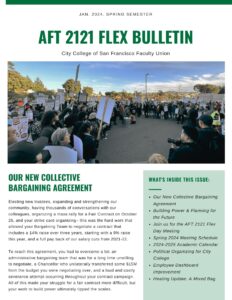
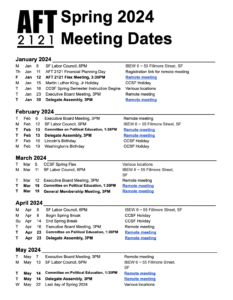
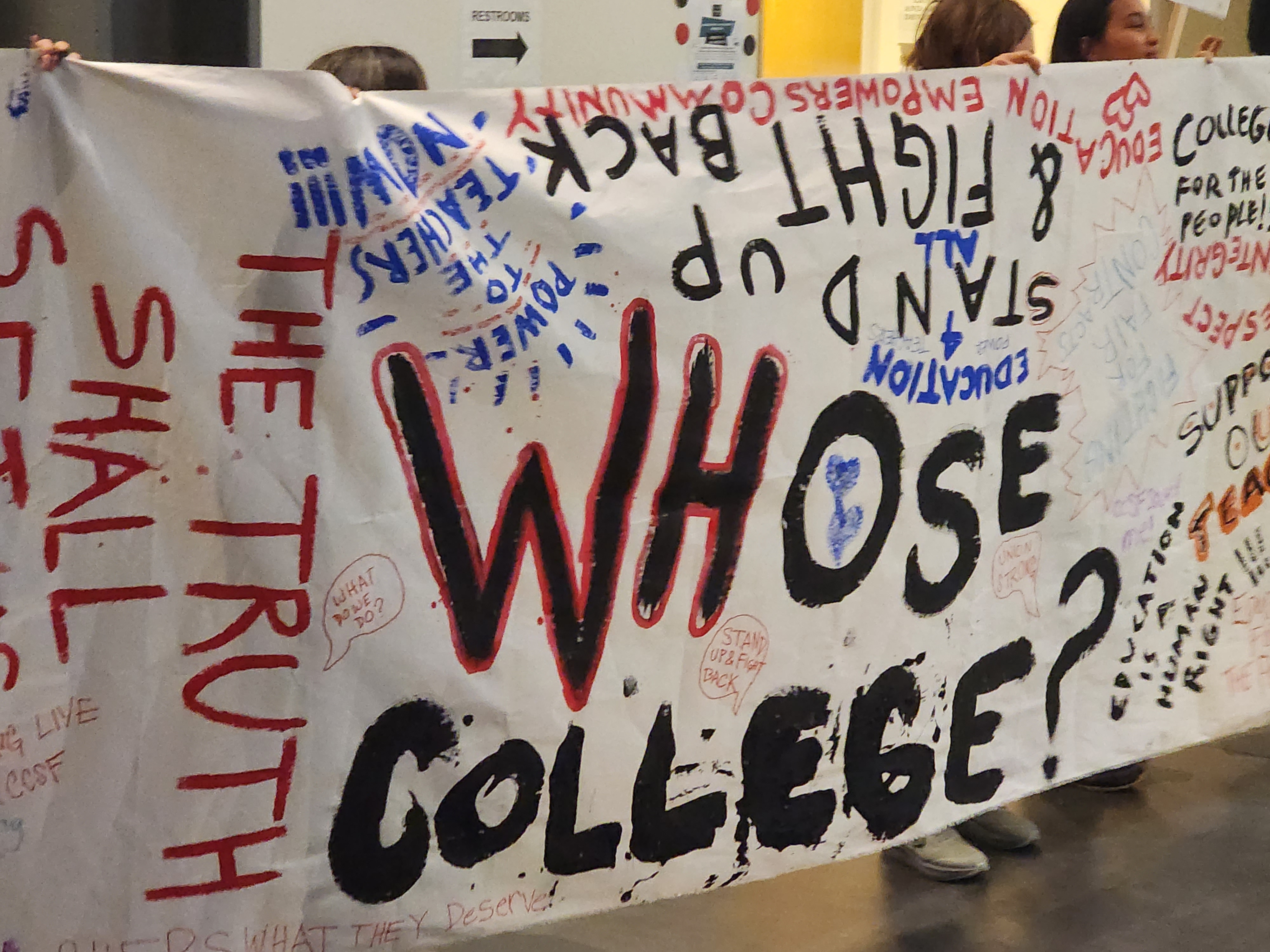
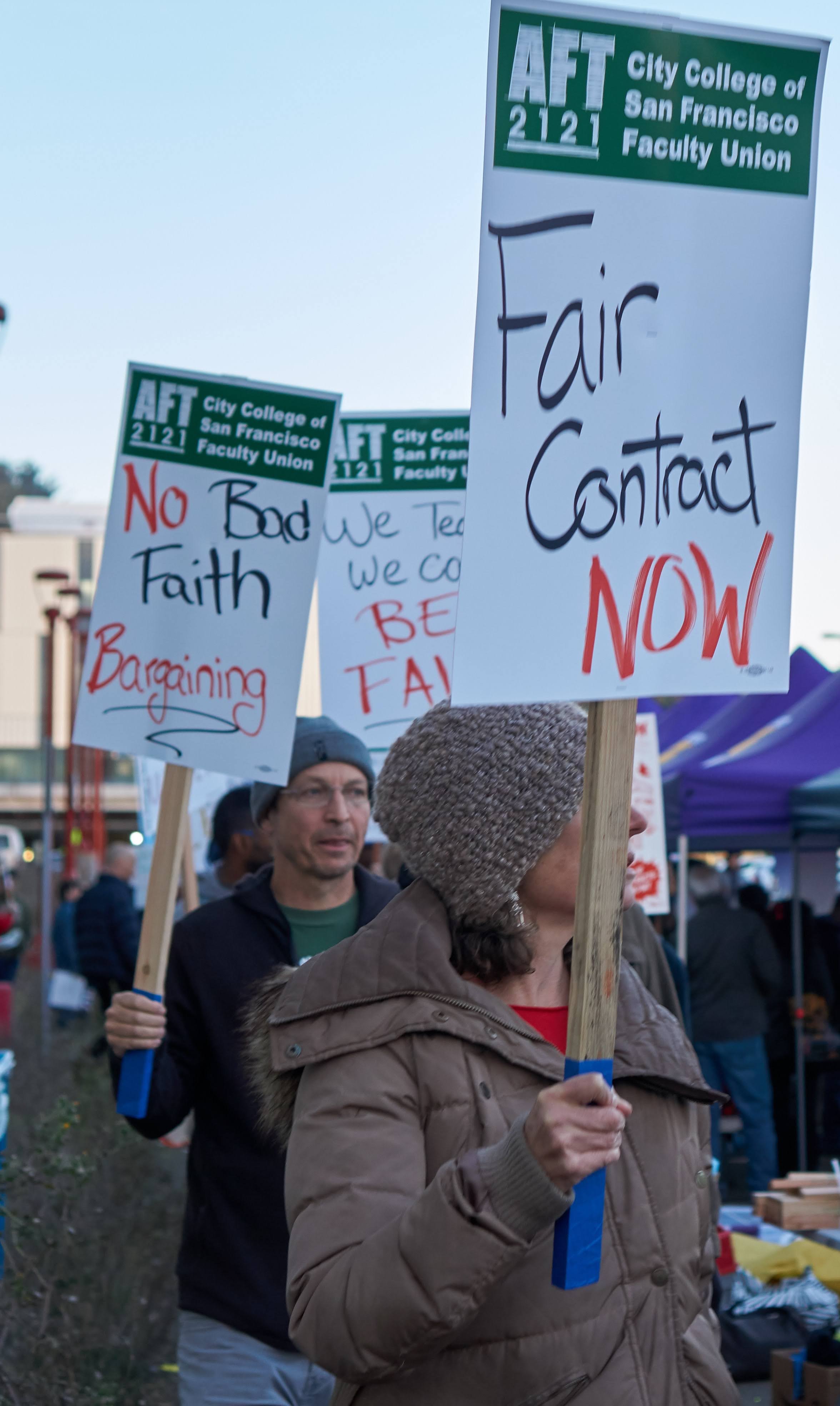
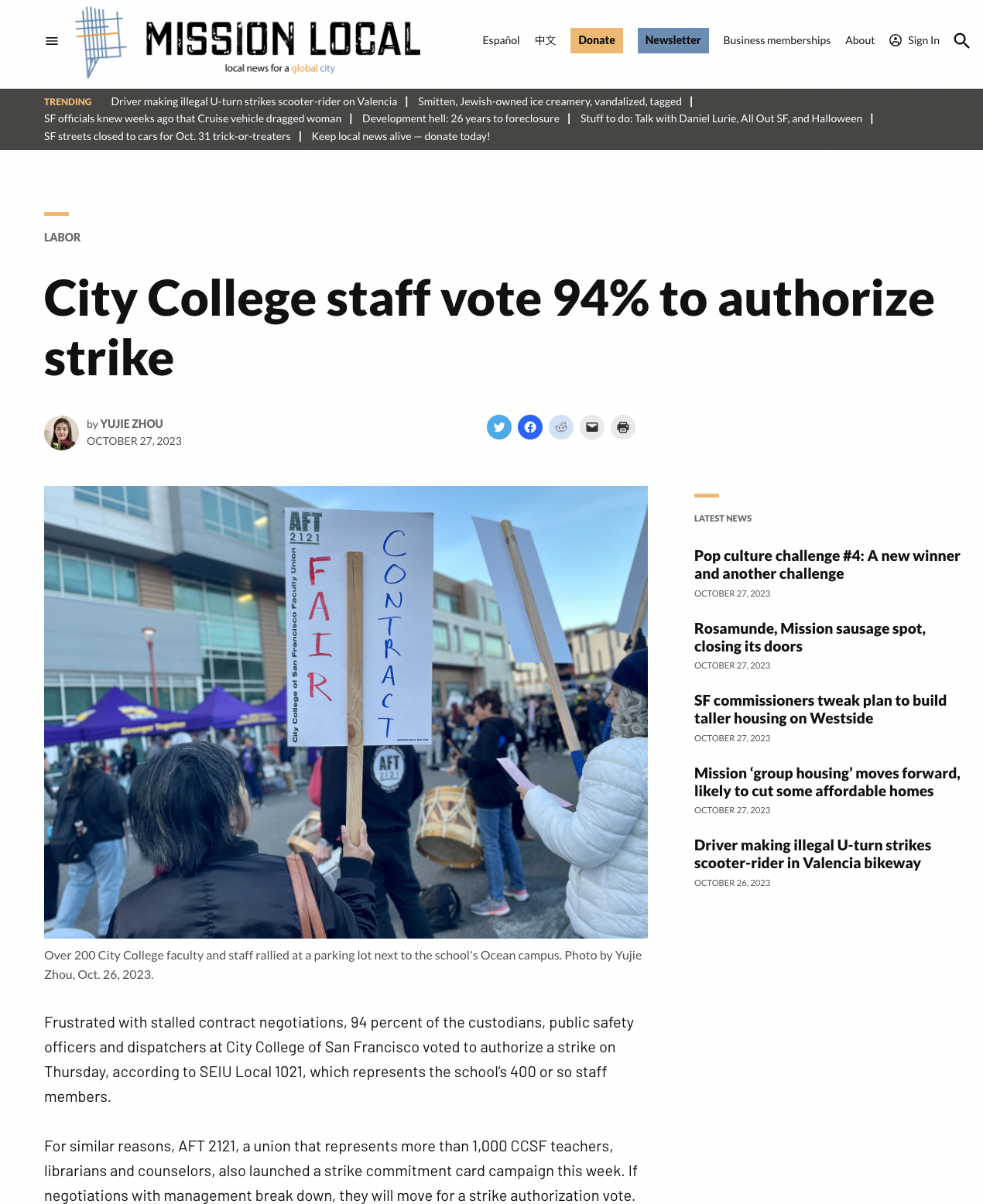
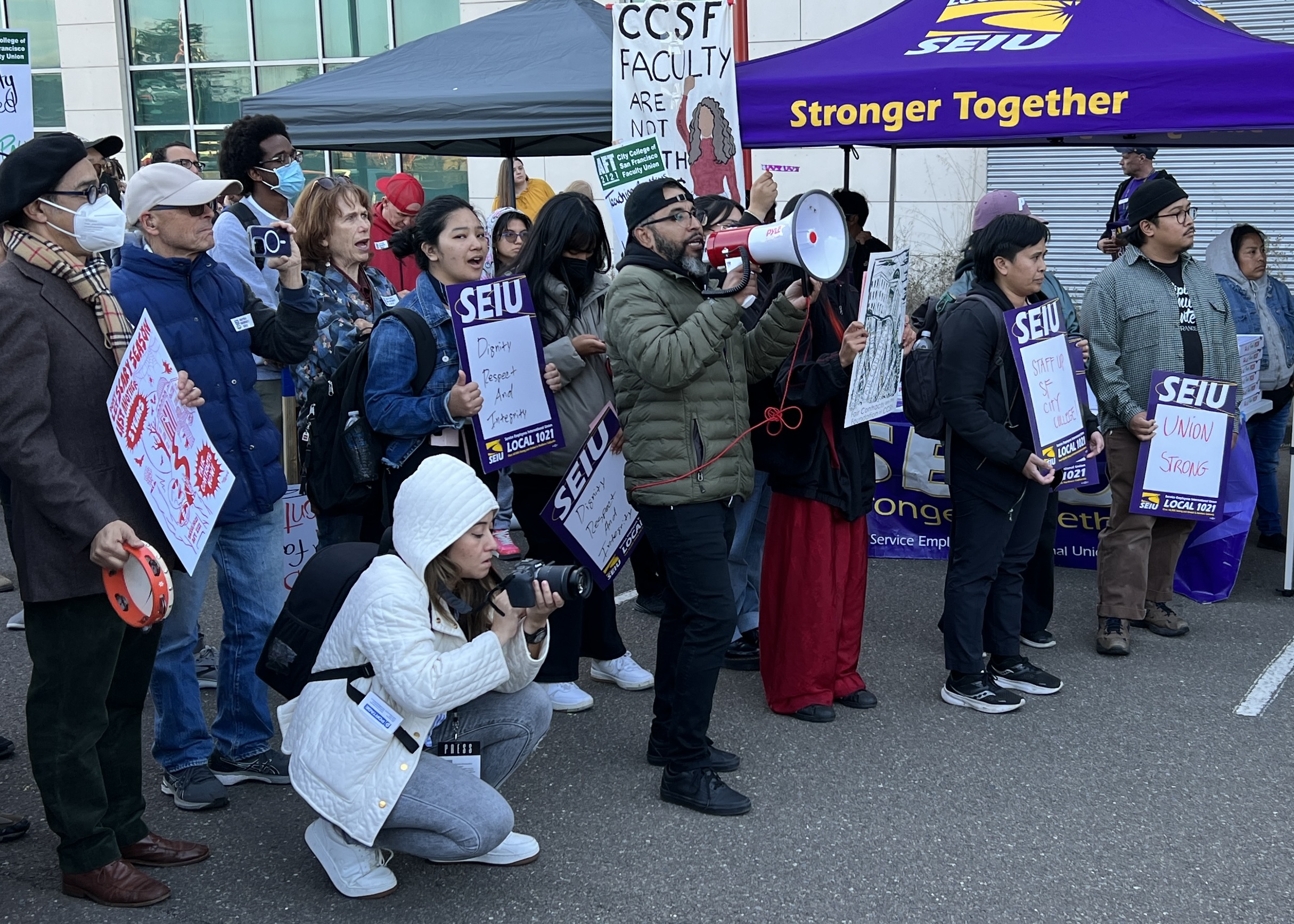
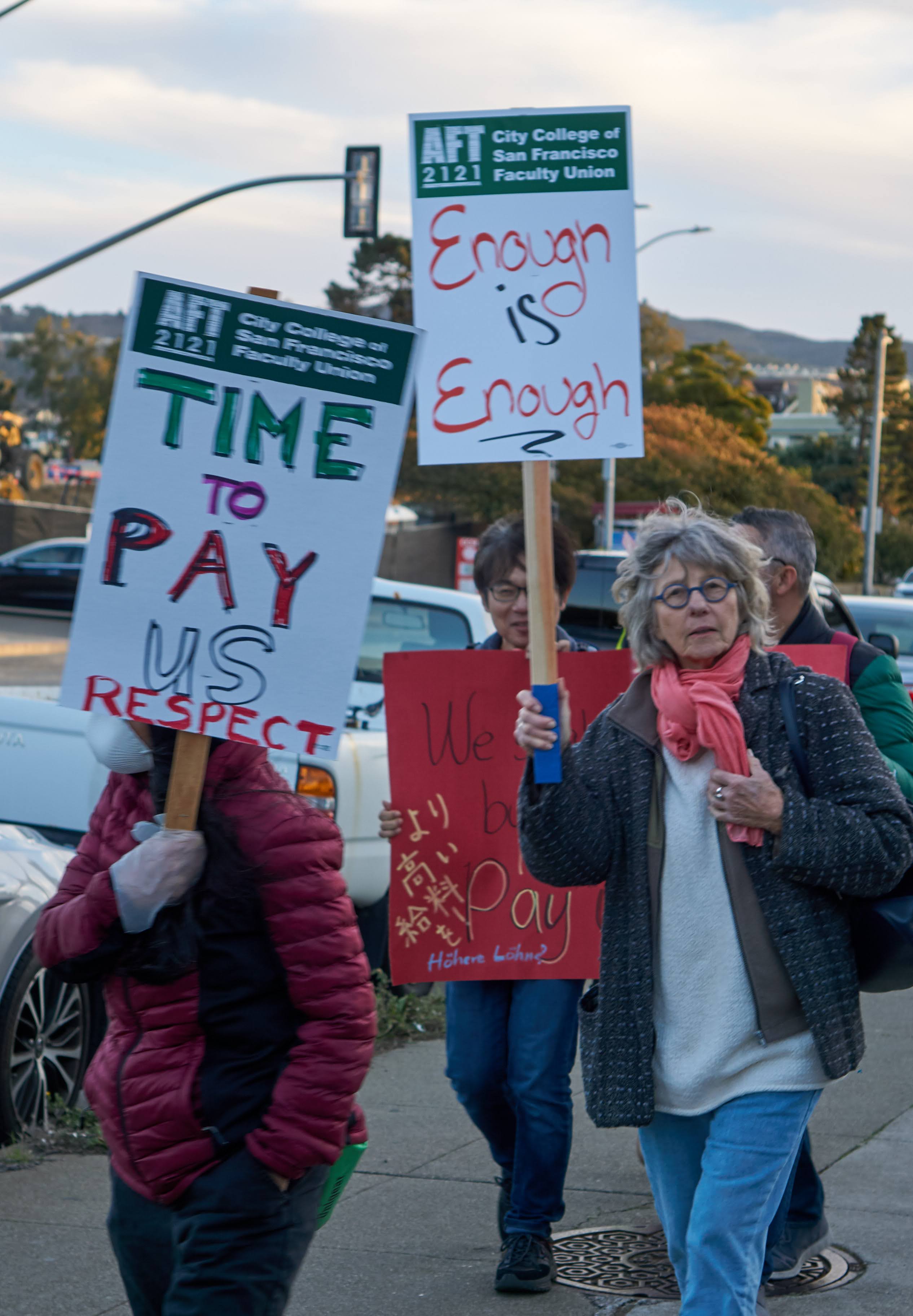
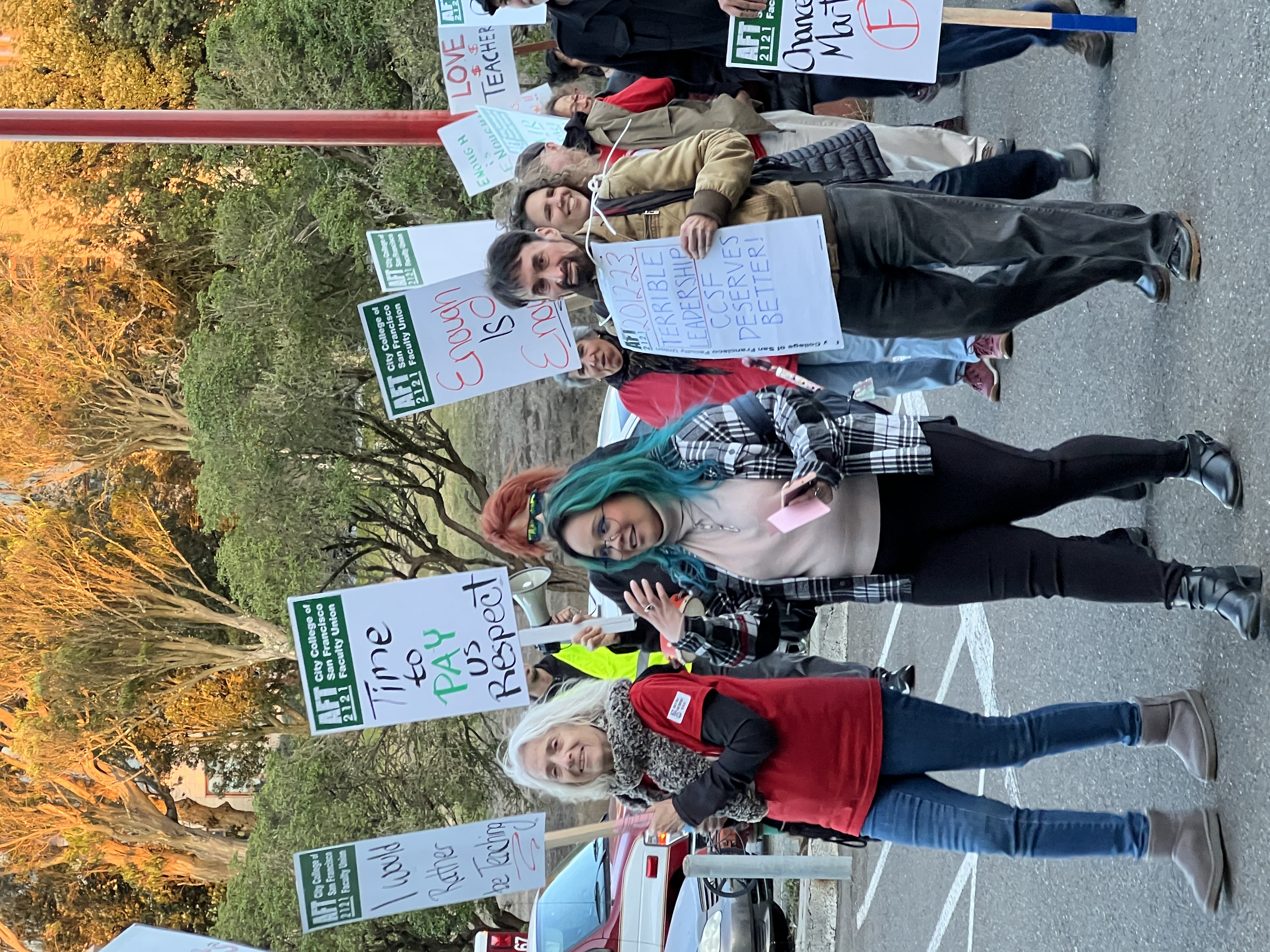
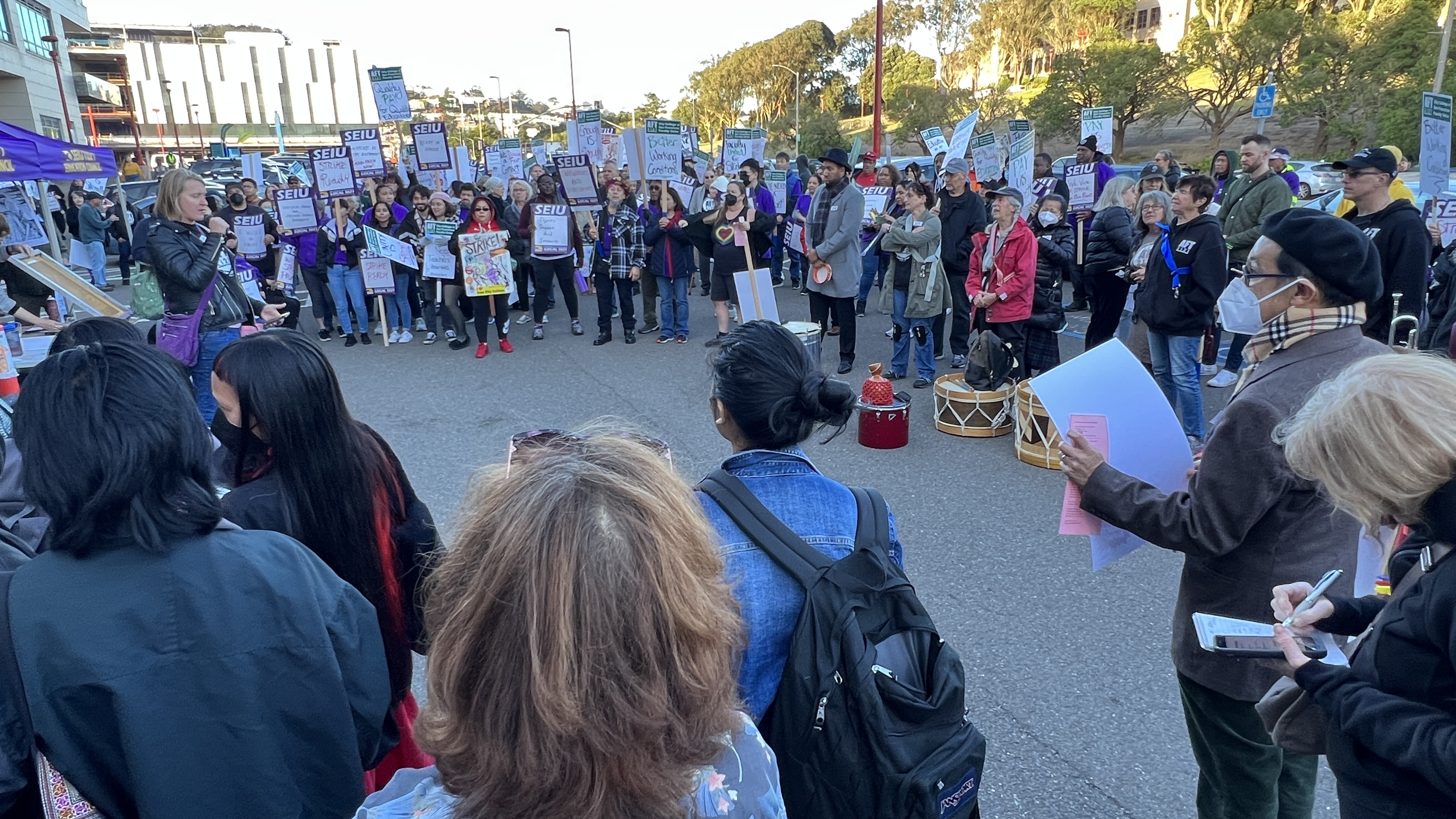
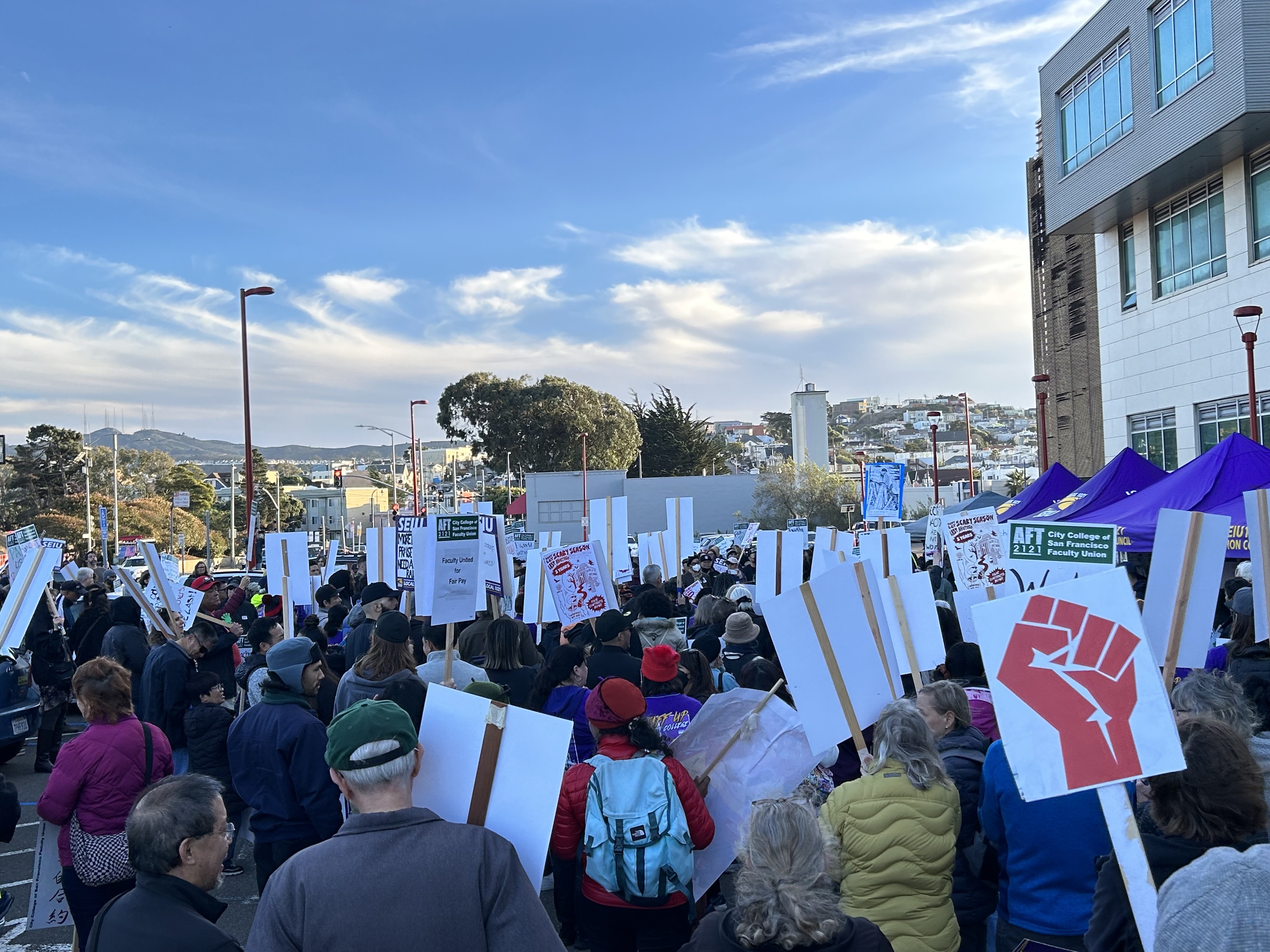
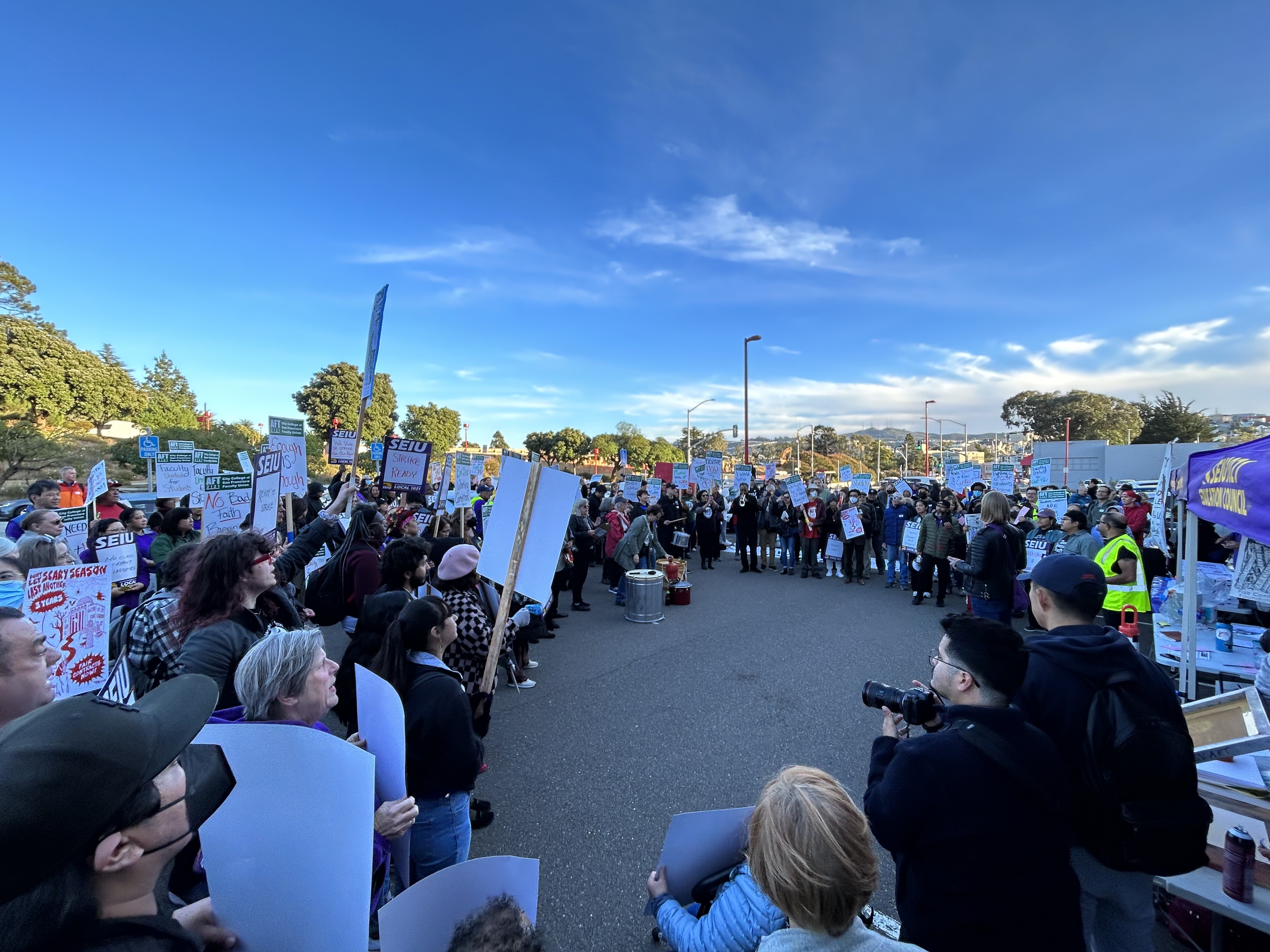
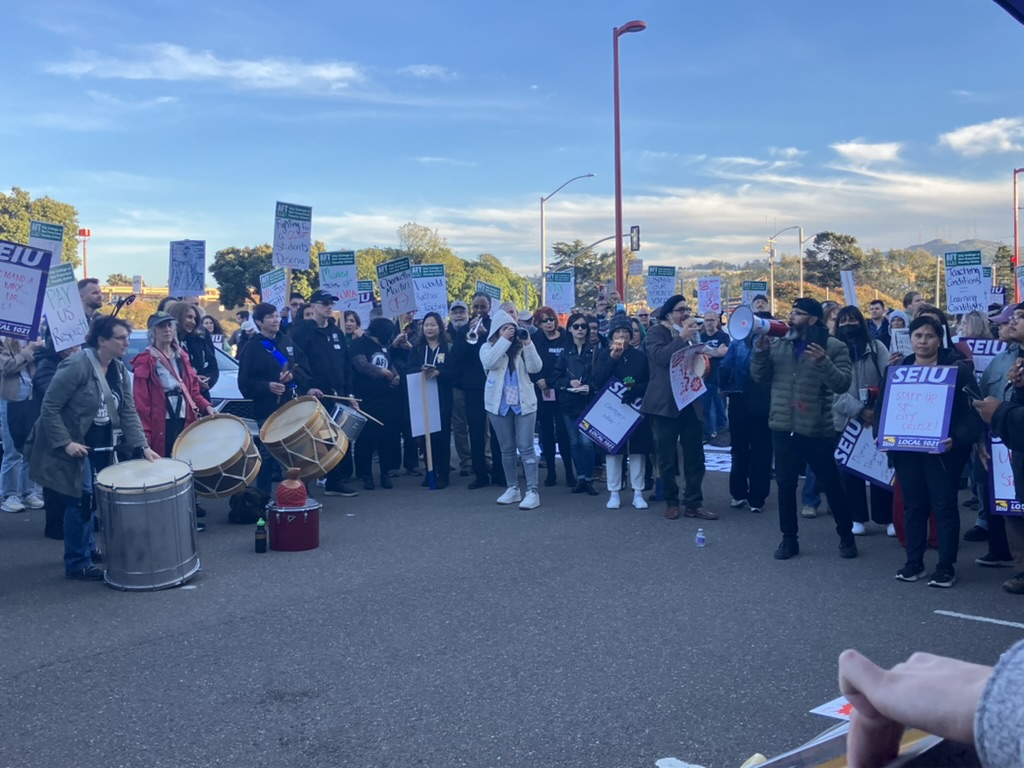
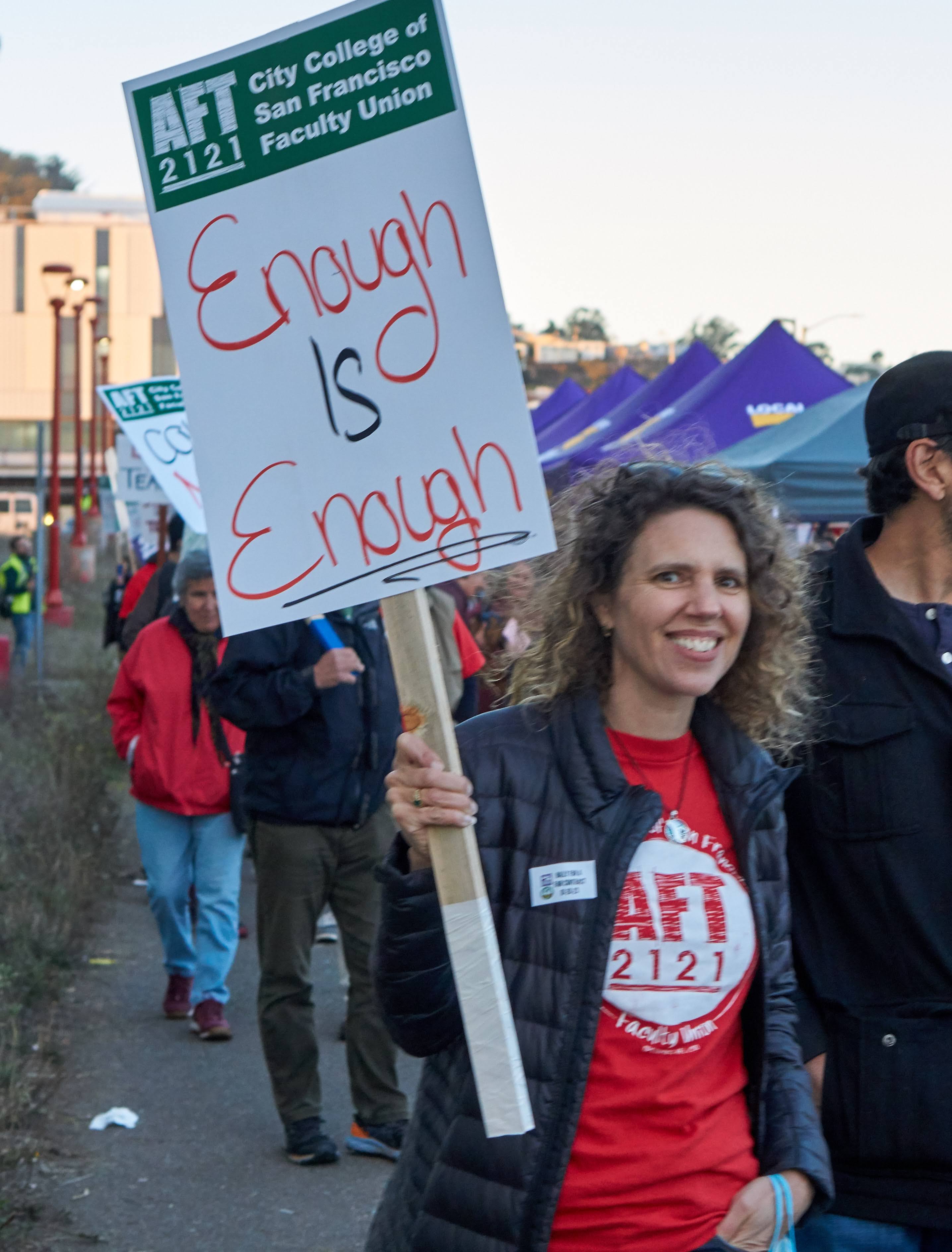

Follow Us!